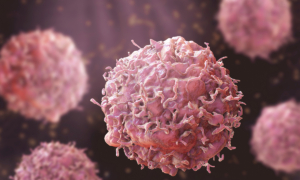The key to easing common menopausal woes such as hot flashes and mood swings may lie deep within your gut.
Emerging research has found a delicate connection between the microbiome and hormones. Restoring gut health can help women navigate the challenges of this natural life transition with greater comfort.
The Microbiome–Hormone Link
The relationship between gut microbes and menopause—during which estrogen levels drop significantly—is anything but simple, and our understanding of it is still evolving. However, research supports several key points:
- Estrogen helps maintain a balanced gut microbiome. As estrogen levels drop during menopause, women often develop dysbiosis, an imbalance in gut bacteria.
- Beneficial gut microbes are instrumental in maintaining a healthy intestinal barrier. Dysbiosis can cause “leaky gut,” which causes the intestinal lining to become permeable, potentially leading to systemic inflammation.
- Leaky gut is linked to hot flashes.
- Rebalancing the gut through diet and a healthy lifestyle that lowers stress can help alleviate hormonal symptoms.
The microbiome–hormone association is one that all women should be aware of, according to JeJe Noval, a functional dietitian who specializes in gut and hormone health for women who are premenopausal and menopausal.
“Gut dysbiosis usually takes place for anyone who goes through menopause,” she told The Epoch Times. “It’s a result of shifting hormones, so because it goes out of balance, we all need to do something about it.
“Just working on the gut community alone and optimizing it can definitely make a big difference in how we feel and other symptoms women feel with menopause.”
Factors Contributing to Dysbiosis
There are additional risk factors that can destroy some of the good bacteria and encourage the growth of more opportunistic or pathogenic bacteria, Noval said.
Antibiotics, birth control hormones, and antacids can cause dysbiosis even before menopause. Bacteria, fungi, and parasites could also be contributing.
Noval assesses her clients’ hormone levels and microbial composition in order to offer personalized recommendations. She cautions against one-size-fits-all probiotic solutions, as they may worsen the situation if not tailored to an individual’s gut community.
Balancing Hormones During Menopause
Gut bacteria that help break down or metabolize estrogen have become
known as the estrobolome. The study of the estrobolome is an emerging field of women’s health that may offer new ways to reduce estrogen-related diseases and symptoms. When estrogen is not broken down, it can increase to potentially dangerous levels, a problem known as estrogen dominance.
Microbes play crucial roles in hormone production and breakdown. Women who lack robust, diverse microbial communities can therefore end up with hormones that are also out of balance, a problem detailed in a 2023 Gut Microbes study. This can result in intense symptoms like hot flashes and anxiety, as well as increased risk of cardiometabolic diseases such as heart disease, obesity, Type 2 diabetes, and nonalcoholic fatty liver disease.
The Leaky Gut Link
Dysbiosis
plays a part in intestinal barrier permeability, a condition in which the tight junctions between intestinal cells loosen, allowing food particles and other substances to enter the bloodstream. This can cause various health issues, including “severe” hot flashes, according to a
study in PLoS One.
The relationship between leaky gut and hormone health appears to be bi-directional, with each influencing the other. Hormone imbalances may cause leaky gut, or result from it.
This issue is complicated further by the nature of menopause itself. Even previously healthy women appear to lose beneficial microbes that protect the intestinal barrier during menopause, Noval said.
Addressing leaky gut is crucial in managing the hormone–microbe effect on menopause, not to mention a host of other ailments.
The PLoS One study found that women experiencing hot flashes have higher inflammation markers and more endotoxins—bacteria that escape from the gut and create an inflammatory response. The researchers concluded that increased gut permeability might lead to systemic inflammation, promoting insulin resistance and metabolic disorders.
Tips for Better Bugs
Fortunately, it’s not all bad news. Since gut microbes and hormones affect one another, women can improve their health and comfort during menopause by tending to both their hormonal health and their microbiome. Lifestyle behaviors, including adding key nutrients to the diet, can influence the microbial makeup of the gut.
Noval focuses on adding beneficial elements to her clients’ diets rather than eliminating foods.
“A lot of people aren’t into eating a good amount of fruits and vegetables every day, and that’s always a good place to start,” she said. “Adding those plant-based food items—not that you have to be vegetarian—increases the balance of good bacteria as well as the antimicrobials.”
She also addresses mineral deficiencies to improve stomach acid production, which is crucial for proper digestion and absorption of nutrients. Low stomach acid can lead to bacterial overgrowth and further gastrointestinal issues.
Noval stresses the importance of eating habits.
“You can be eating all the right foods,” she said, “but if you aren’t taking the time to slow down, to chew your food really well, then that can also affect the digestive system, making it difficult for the gut microbial community to go back into balance.”
Chewing food is associated with an increase of short-chain fatty acids—metabolites created by microbes that have a positive association with health—and better colon function, with richer immune cells.
Diverse Diet for Diverse Bugs
Noval also recommends that women at all menopausal stages eat about
30 different plant-based foods every week. This advice comes out of the
largest microbiome study in the United States, which found that participants eating 30 unique plants weekly had more diverse microbiomes than those consuming 10 or fewer.
This diversity is crucial during menopause because it modulates beta-glucuronidase, an enzyme in the estrobolome that helps metabolize estrogen. The liver helps detoxify excess estrogen, and when it sends it to the gut for elimination, that estrogen can sometimes be recycled back into the body if beta-glucuronidase levels are imbalanced, Noval said.
Excess beta-glucuronidase indicates not only estrogen dominance, but also a risk of diseases like certain breast and ovarian cancers, as well as endometriosis and menopause symptoms such as anxiety, hot flashes, and insomnia, according to a 2023 review in Gut Microbes. It suggests that gut microbiota offer an opportunity for intervention that can improve how the body processes estrogen, maintain an ideal hormonal balance, and potentially reduce estrogen-driven diseases like breast cancer.
Other Hormones Matter, Too
Finally, Noval advises her clients to slow down and mitigate unmanaged stress, particularly around mealtimes.
Acute stress is associated with an increase of pathogenic bacteria, and chronic stress can lower the diversity of gut microbiota, according to a 2023 review in Neuropsychobiology.
“It’s best to eat meals at regular times and not wait too long, because when women do, it can send a signal to their body making their body think they’re in stress when they’re not,” Noval said. “The body doesn’t understand the difference between being chased by a bear and not eating enough.”
According to Dr. Anna Cabeca, a triple-board certified expert in gynecology, integrative, and anti-aging medicine, the interconnection between estrogen, other sex hormones, insulin, and cortisol—a stress hormone—also influences the gut microbiome.
She understands it from personal experience. She reversed premature menopause once when she began to gain weight at age 48 without doing anything differently—an experience her patients often described to her.
Cabeca began to focus on boosting oxytocin, called the “love” hormone, beyond intimate relationships. This included snuggling, socializing, nurturing friendships, and caring for pets.
Calming behaviors increase oxytocin, creating a virtuous cycle—much like how cortisol can create a vicious cycle. “It takes more than hormones to fix your hormones,” Cabeca said. “You’ve got to dial in your lifestyle and your nutrition.”













